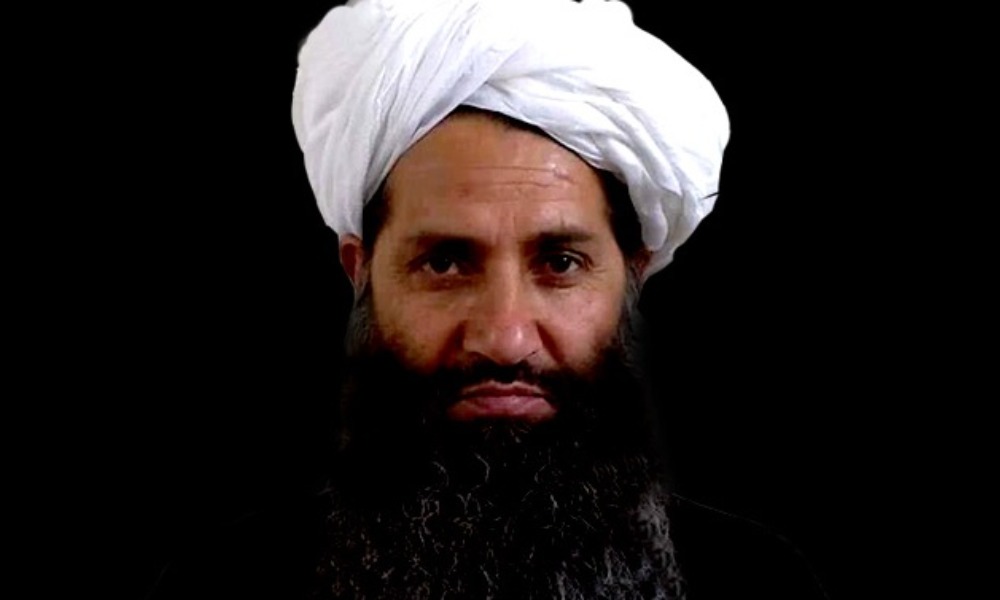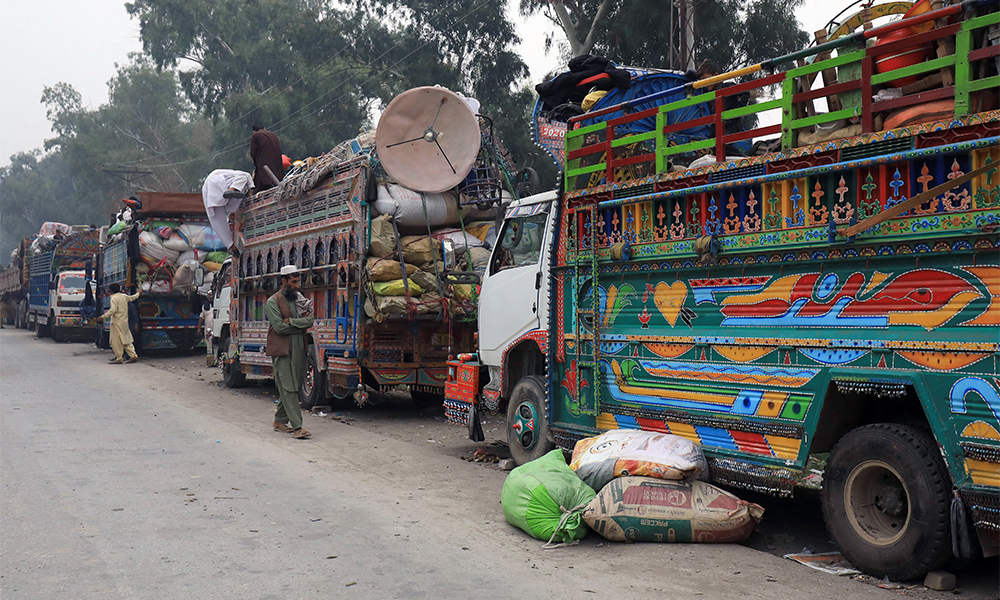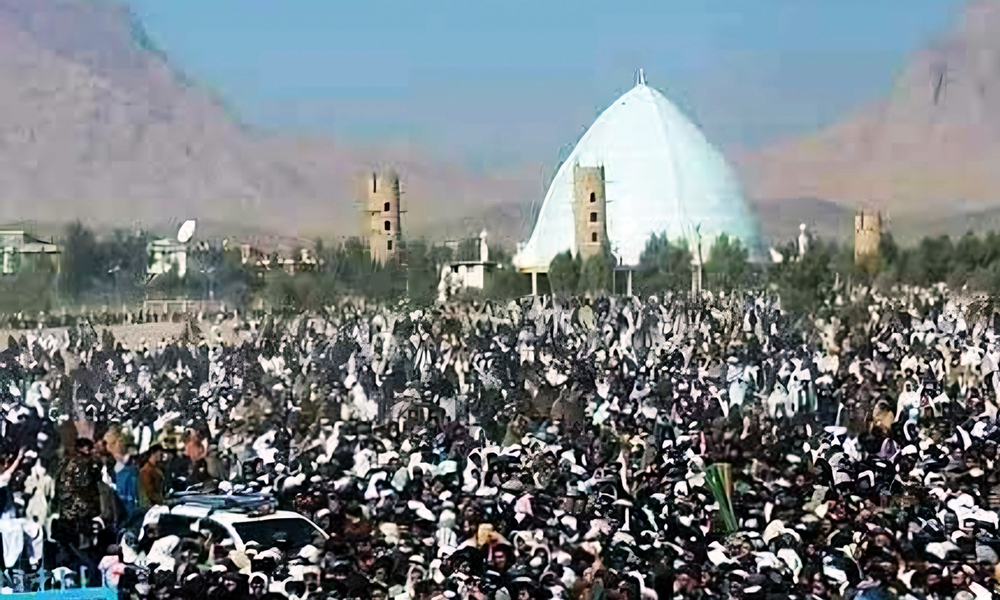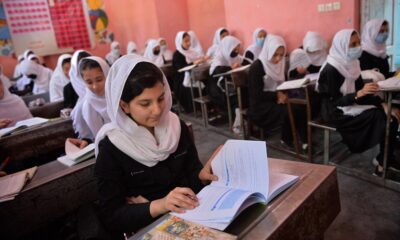Latest News
Omar Ismail Mostefai identified as assailant in Paris attack

Source : BBC
One of the attackers who killed 129 people in Paris has been identified by French investigators.
French citizen Omar Ismail Mostefai was named by local media and a French parliamentarian.
The 29-year-old had a criminal record and was known to have been radicalised.
Investigators identified him after his severed fingertip was found at the Bataclan concert hall, where three attackers blew themselves up, AFP news agency reports.
Friday’s attacks, claimed by Islamic State (IS) militants, hit a concert hall, a major stadium, restaurants and bars in the French capital.
Prosecutors say seven assailants – armed with Kalashnikovs and suicide belts – were organised into three teams, and there are fears that some may have fled the scene.
Prime Minister Manuel Valls has said France will continue with air strikes against IS in Syria, and described the group as a very well-organized enemy.
History of petty crime
Police are trying to find out whether Mostefai travelled to Syria in 2014, judicial sources told AFP.
His father and brother have been taken into police custody.
“It’s crazy, insane. I was in Paris myself last night, I saw what a mess it was,” Mostefai’s older brother told AFP before being detained after voluntarily attending a police station on Saturday.
Mostefai came from the town of Courcouronnes, 25km (15 miles) south of Paris. He lived in the nearby town of Chartres until 2012, according to the local MP and deputy mayor Jean-Pierre Gorges.
He had a history of petty crime but was never jailed. The security services deemed him to have been radicalised in 2010 but he was never implicated in a counter-terrorism investigation.
Mostefai’s brother said he had not had contact with him for several years following family disputes, but said he was surprised to hear he had been radicalised.
He was one of six children in the family and had travelled to Algeria with his family and young daughter, the brother said.
Belgian link?
The investigation is also focusing on a possible link to Belgium after police there arrested three men near the French border.
A black Volkswagen Polo with Belgian registration found at the Bataclan had been rented by a Frenchman living in Belgium, the Paris chief prosecutor said.
The French national was identified while driving another vehicle in a spot check by police on Saturday morning as he crossed into Belgium with two passengers.
The BBC’s Hugh Schofield in Paris says investigators are working on the theory that these three may be another team of attackers who managed to flee the scene.
Speaking in Paris, chief prosecutor Francois Molins told reporters: “We can say at this stage of the investigation there were probably three co-ordinated teams of terrorists behind this barbaric act.
“We have to find out where they came from… and how they were financed.”
Mr Molins said the police were also investigating a black Seat used by gunmen at two of the attacks, which remains untraced.
The Greek authorities say two people under investigation by the French police had registered in Greece as Syrian refugees. A Syrian passport was found near the body of one the attackers at the Stade de France.
An Egyptian passport has also been linked to the attacks.
French President Francois Hollande has imposed a state of emergency after the worst peacetime attack in France since World War Two. It is also the deadliest in Europe since the 2004 Madrid bombings.
Islamic State released a statement on Saturday saying “eight brothers wearing explosive belts and carrying assault rifles” had carried out the attacks on “carefully chosen” targets, and were a response to France’s involvement in the air strikes on IS militants in Syria and Iraq.
Shortly before, President Hollande said France had been “attacked in a cowardly shameful and violent way”.
“So France will be merciless in its response to the Daesh [Islamic State] militants,” he said, vowing to “use all means within the law… on every battleground here and abroad together with our allies”.

Latest News
Islamic Emirate faces a wave of negative propaganda: Supreme leader
In his speech, Akhundzada emphasized on avoiding division and disunity, stating that the survival of the system lies in unity and solidarity.

Mawlawi Hibatullah Akhundzada, supreme leader of the Islamic Emirate of Afghanistan (IEA), led Eid-ul-Fitr prayer in Kandahar province on Sunday, attended by thousands of people.
In his speech, Akhundzada emphasized on avoiding division and disunity, stating that the survival of the system lies in unity and solidarity.
He added that the Islamic Emirate is facing a wave of negative propaganda, and its enemies are using these tactics to incite war and conflict in the country once again.
He warned that division would lead to the failure of Muslims and the collapse of systems.
The leader of the Islamic Emirate further mentioned that they sacrificed their lives for 20 years to achieve victory in jihad, and protecting this system requires even more sacrifices.
He called on the people, the forces of the Islamic Emirate, and officials to obey the leadership’s orders, emphasizing that the absence of leadership in the past led to civil wars, which must not be repeated.
Latest News
Pakistan finalizes plans to detain and deport Afghans as deadline nears
Pakistan has granted Afghan migrants, both undocumented and those holding ACC cards, a deadline of March 31 to voluntarily leave the country.

Officials in Pakistan have completed arrangements to detain and expel Afghan citizens following the March 31 deadline for their voluntary return to Afghanistan. This move is part of the country’s plan to address the growing concerns regarding the status of Afghan migrants in Pakistan.
A high-level meeting on Friday, chaired by Interior Minister Mohsin Naqvi, reviewed the measures to repatriate Afghan Citizen Card (ACC) holders. This meeting focused on ensuring the effective execution of the government’s deadline and the logistics surrounding the return process.
Despite requests from the Afghan government and human rights organizations, Pakistani authorities have firmly rejected extending the deadline for the return of ACC holders. The Pakistani government had initially set the deadline for the end of March, and the expulsion process will move forward as planned.
Mohsin Naqvi also revealed that Talal Chaudhry, the State Minister for Interior, would travel to the provinces to assess and address any challenges and potential issues in the process of Afghan migrants’ return.
Meanwhile, Pakistani security forces have detained at least 932 Afghan migrants in Rawalpindi, as the deadline for the expulsion of Afghan migrants with ACC cards approaches.
Human rights organizations have strongly condemned Pakistan’s recent decision to expel Afghan refugees, labeling it a violation of international law and a potential humanitarian crisis. They argue that many of these refugees, including human rights defenders, political activists, and victims of gender-based violence, fled Afghanistan to escape persecution and are now at risk of facing harm if deported.
The Human Rights Commission of Pakistan (HRCP) has expressed deep concern over the government’s ultimatum for undocumented immigrants to leave by March 31, warning that this could lead to a humanitarian disaster. They highlight that such forced repatriation violates international customary law and could adversely affect vulnerable groups, including women, children, the elderly, and individuals with disabilities.
Amnesty International has called on Pakistan to halt the detentions, deportations, and harassment of Afghan refugees, emphasizing that these actions violate the principle of non-refoulement, which prohibits returning individuals to places where they face risks of persecution. They stress that deporting Afghan refugees, especially women and girls, could deny them access to safety, education, and livelihoods.
Pakistan has granted Afghan migrants, both undocumented and those holding ACC cards, a deadline of March 31 to voluntarily leave the country.
However, Pakistani officials confirmed that Afghan migrants holding “PoR” cards are not at risk of being expelled until June 30.
Meanwhile, the International Organization for Migration (IOM) reported a sharp decline in Afghan returns and deportations during the first half of March. Between March 1 and 15, returns dropped by 67 per cent, while deportations fell by 50 per cent compared to the previous reporting period (February 16-28).
Latest News
Eid prayer led by IEA leader in Kandahar: Mujahid
Abdul Salam Hanafi, the Deputy Prime Minister for Administrative Affairs, called on opposition groups to return to Afghanistan and participate in the country’s reconstruction.

Zabihullah Mujahid, the spokesperson for the Islamic Emirate, announced on Sunday that the Eid al-Fitr prayer was held at the Eidgah Mosque in Kandahar, where Hibatullah Akhundzada, the Supreme Leader of the IEA, led the prayers.
Thousands of people attended the event, marking a significant religious occasion.
Other IEA senior officials gathered for the Eid prayer at the ARG (Presidential Palace) in Kabul.
Mullah Abdul Ghani Baradar, the Deputy Prime Minister for Economic Affairs, took the opportunity to address the public, stating that the Islamic Emirate is ready to engage with the world based on mutual respect. He also emphasized the importance of unity and solidarity among the Afghan people.
Baradar stressed that rebuilding the country requires internal unity and that no foreign entity can achieve this task for Afghanistan. On security, he highlighted the achievements of the past three years, asserting that under their administration, Afghanistan has become fully secure.
He reaffirmed that the IEA is committed to fostering international relations through an “economy-driven policy.”
Abdul Salam Hanafi, the Deputy Prime Minister for Administrative Affairs, called on opposition groups to return to Afghanistan and participate in the country’s reconstruction.
Hanafi reiterated the IEA’s desire for economy-driven relations with all regional and global powers based on mutual respect.
Mohammad Yousuf Wafa, the Governor of Balkh, also affirmed that the current system will not be undermined. He stated, “This system was established through great sacrifices, and it is our collective duty to defend it.”
The Eid prayers and the speeches of the IEA leadership underscored a message of unity, security, and a desire for positive international engagement.
-

 World5 days ago
World5 days agoSecretive Chinese network tries to lure fired US federal workers, research shows
-

 Latest News4 days ago
Latest News4 days agoAfghanistan has the right to access Amu River’s water: Uzbek minister
-

 Climate Change5 days ago
Climate Change5 days agoUN and ICRC warn of serious water shortage in Afghanistan
-

 Latest News4 days ago
Latest News4 days agoAmnesty international urges Pakistan to halt Afghan deportations
-

 International Sports5 days ago
International Sports5 days agoIPL 2025: Punjab Kings secure thrilling 11-run win over Gujurat Titans
-

 Latest News4 days ago
Latest News4 days agoUN ‘deeply disappointed’ over ongoing ban on girls’ secondary education
-

 Latest News3 days ago
Latest News3 days agoAfghanistan-Iran-Europe railway corridor activated
-

 Business3 days ago
Business3 days agoAfghanistan ships first consignment to Europe via Khaf-Herat railway
















